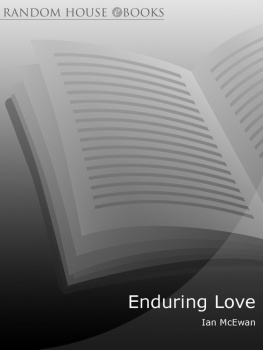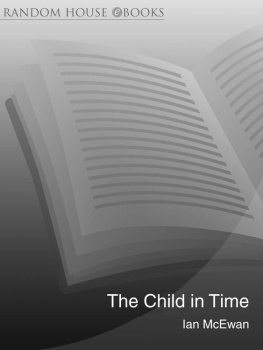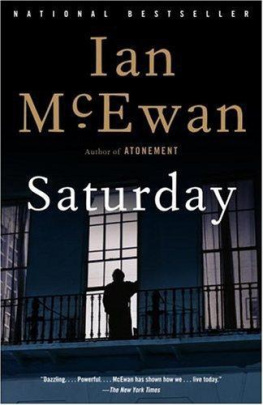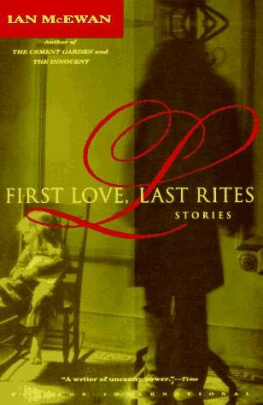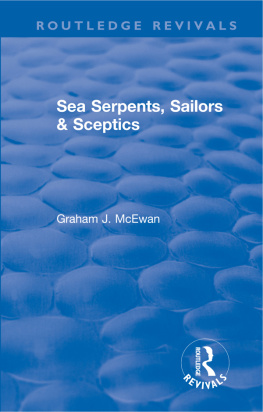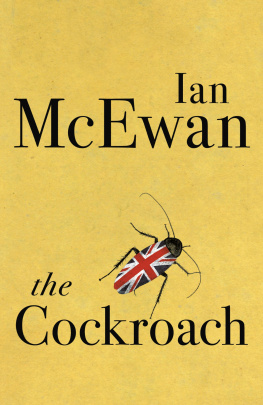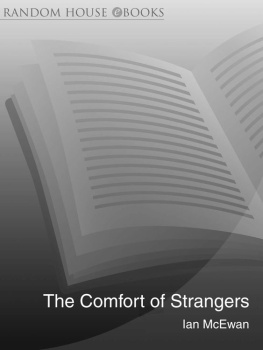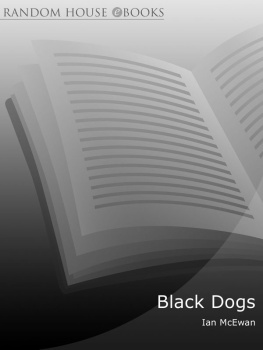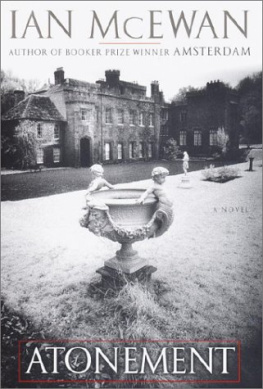Acknowledgements
Above all, I would like to thank Ray Dolan, friend and hiking companion, for many years of stimulating discussion. I would also like to thank Galen Strawson, Craig Raine, Tim Garton Ash and Chief Inspector Amon McAfee. I am indebted to the following authors and books: E.O. Wilson, On Human Nature, The Diversity of Life, Biophilia; Stephen Weinberg, Dreams of a Final Theory; Steven Pinker, The Language Instinct; Antonio Damasio, Descartes Error; Robert Wright, The Moral Animal; Walter Bodmer and Robert McKie, The Book of Man; Robert Gittings, John Keats; Stephen Gill, William Wordsworth, A Life.
by the same author
FIRST LOVE, LAST RITES
IN BETWEEN THE SHEETS
THE CEMENT GARDEN
THE COMFORT OF STRANGERS
THE CHILD IN TIME
THE INNOCENT
BLACK DOGS
THE DAYDREAMER
THE IMITATION GAME
(plays for television)
OR SHALL WE DIE?
(libretto for oratorio by Michael Berkeley)
THE PLOUGHMANS LUNCH
(film script)
SOUR SWEET
(film script)
Appendix I
Reprinted from the British Review of Psychiatry
Robert Wenn MB Bch. MRCPsych & Antonio Camia MA, MB, DRCOG, MRCPsych
A homo-erotic obsession, with religious overtones: a clinical variant of de Clrambaults syndrome
The case of a pure (primary) form of de Clrambaults syndrome is described in a man whose religious convictions are central to his delusions. Dangerousness and suicidal tendencies are also present. The case adds to recent literature supporting the view that the syndrome is a nosological entity.
Introduction
Erotic delusions, erotomania and the associated pathologies of love have produced a rich and varied literature which describes, at one extreme, unusual behaviour or acceptable occurrences without psychopathological implications, and at the other, strange variants encompassed by a schizophrenic psychosis. The earliest references are to be found in Plutarch, Galen and Cicero and, as a review of the literature by Enoch & Trethowan (1979) makes clear, the term erotomania has suffered from the very beginning from a lack of clear definition.
In 1942 de Clrambault carefully delineated the paradigm that bears his name, a syndrome he termed les psychoses passionelles, or pure erotomania to distinguish it from more generally accepted erotic paranoid states. The patient, or subject, usually a woman, has the intense delusional belief that a man, the object, often of higher social standing, is in love with her. The patient may have had little or no contact with the object of her delusion. The fact that the object is already married is likely to be regarded by the patient as irrelevant. His protestations of indifference or even hatred are seen as paradoxical or contradictory; her conviction that he really loves her remains fixed. Other derived themes include beliefs that the object will never find true happiness without her, and also that the relationship is universally acknowledged and approved. De Clrambault was emphatic that in the pure form of the condition onset was precise and sudden, even explosive, and that this was an important differentiating factor; paranoid erotic states, he believed, probably erroneously (Enoch & Trethowan 1979), developed gradually.
Central to de Clrambaults paradigm was what he termed a fundamental postulate of the patient having a conviction of being in amorous communication with a person of much higher rank, who has been the first to fall in love and was the first to make advances. Such communication may take the form of secret signals, direct contact and the deployment of phenomenal resources to meet the patients needs. She feels she is watching over and protecting the object of her delusion.
In one of his earliest and most celebrated cases, de Clrambault described a 53-year-old French woman who believed King George V was in love with her. She persistently pursued him from 1918 onwards, paying several visits to England:
She frequently waited for him outside Buckingham Palace. She once saw a curtain move in one of the palace windows and interpreted this as a signal from the King. She claimed that all Londoners knew of his love for her, but alleged that he had prevented her from finding lodgings in London, made her miss her hotel bookings, and was responsible for the loss of her baggage containing money and portraits of him... She vividly summarized her passion for him. The King might hate me, but he can never forget. I could never be indifferent to him, nor he to me... It is in vain that he hurts me... I was attracted to him from the depths of my heart...
Over the years, as more cases are described, there has been a tendency both to broaden and clarify the defining criteria: not only women suffer, not only heterosexual attraction is involved. At least one of de Clrambaults patients was male, and more male sufferers have been identified since. In their survey of mostly male patients, Mullen and Pathe conclude that in intrusiveness and dangerousness men predominate. Homosexual cases have been reported by Mullen & Pathe (1994), by Lovett Doust & Christie (1978), by Enoch and his co-workers, by Raskin & Sullivan (1974) and by Wenn & Camia (1990).
Thus the diagnostic criteria for the primary syndrome (i.e., de Clrambaults syndrome) as suggested by Enoch & Trethowan would be likely to find general acceptance among those who accept the clinical entity: a delusional conviction of being in amorous communication with another person, this person is of much higher rank, has been the first to fall in love, and the first to make advances, the onset is sudden, the object of the amorous delusion remains unchanged, the patient gives an explanation for the objects paradoxical behaviour, the course is chronic, hallucinations are absent and there are no cognitive defects.
Mullen and Pathe cite Perez (1993) who observes that an increasing awareness of the threat presented by de Clrambault sufferers is bringing about an explosion of legislation to protect their victims. Mullen and Pathe highlight the tragedy for patients and victims alike: for the patients, love becomes an isolating and autistic mode of being, in which any possibility of unity with another is lost. The tragedy for those on whom they fix their unwanted attentions is that, at the very least, they suffer harassment and embarrassment, or the disintegration of their closest relationships, and at the worst they may fall victim to the violent expression of resentment, jealousy or sexual desire.
Case history
A 28-year-old unmarried man, P, was referred from the courts following charges arising out of an attempted murder.
P was the second child of an elderly father who died when P was 8, and of an unsupportive mother who re-married when P was 13. By his own account, P was an intense and lonely child, prone to daydreaming, who did not easily make friends. When his mother re-married he was sent to boarding school where he was above average academically, but not dramatically so. While he was there his older sister moved abroad and he never saw her again. He did not remember being teased or bullied, but he formed no close friendships, and thought the other boys looked down on him because he had no father to boast about, the way they did. He gained entrance to university where the pattern of isolation continued. P felt the students were frivolous. He joined the Student Christian Movement and though he did not remain a member for long, he began to take comfort in his faith about this time. He left university with a poor degree in history and for the next four years drifted between low-skilled jobs. By now he had virtually no contact with his mother who had divorced her second husband and had inherited a large house in north London and a sum of money from her sister.

